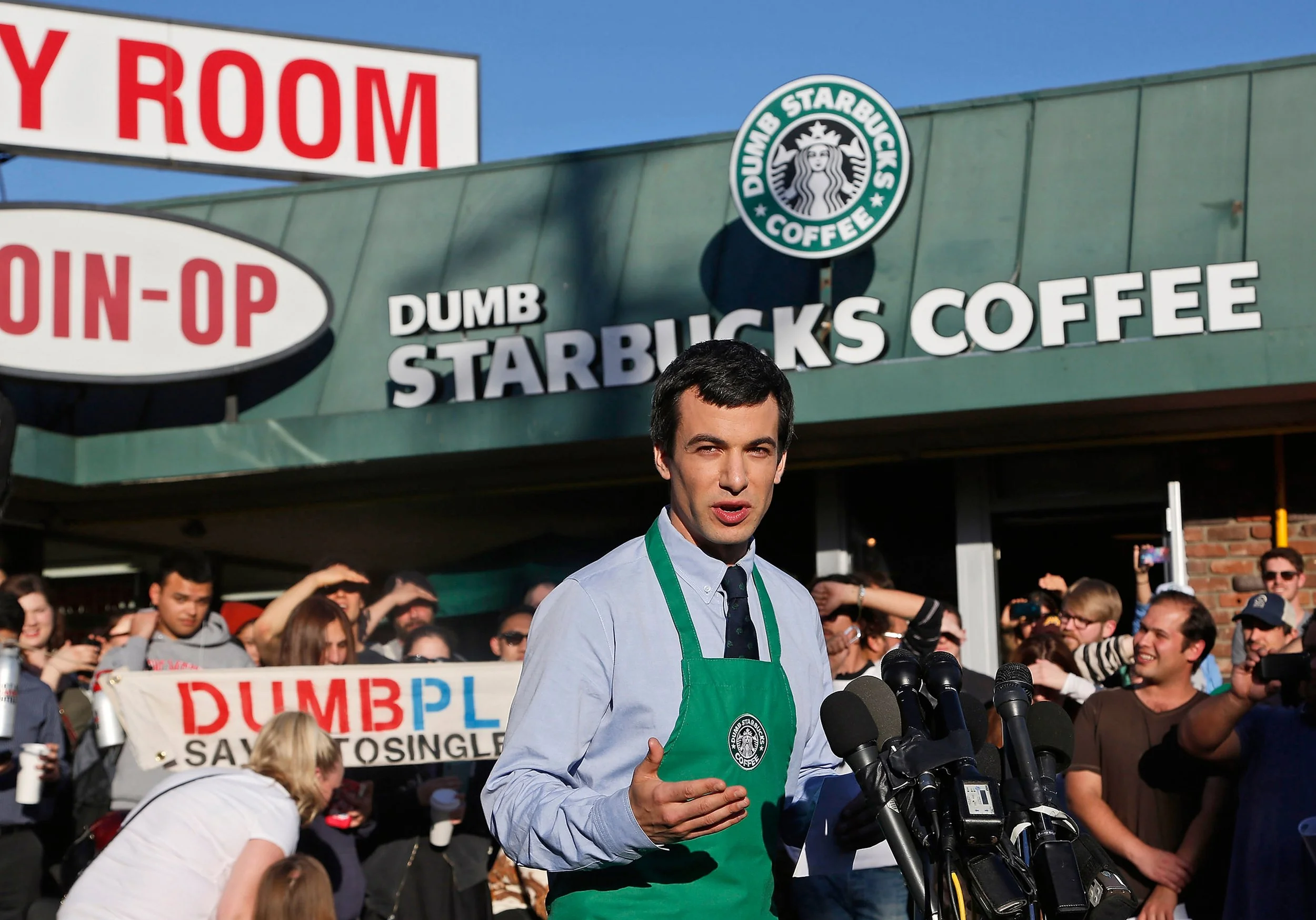Nathan Fielder Blurs the Line Between TV and Reality
His new show “The Rehearsal” is top-tier cringe comedy but begins to bring up concerns around his methodology
For many shows, the themes and messages of each season seem to crystalize and come into focus with each passing episode. Often, much of the plot builds to a clear climax, where main characters reveal their true feelings or intentions. If there was ever an outlier to this format, Nathan Fielder’s new show is undoubtedly a frontrunner.
“The Rehearsal” is a brand-new show on HBO Max from the mind of Nathan Fielder, the patently awkward, wickedly funny comedian behind shows like “Nathan for You” and “How To with John Wilson.” Known for cringy, parody-style comedy, Nathan Fielder has long garnered somewhat of a cult following since the release of “Nathan for You” in 2013, where he plays a hyperbolic, larger-than-life version of himself as he attempts to help struggling small businesses or people.
On most episodes, he offers outlandish, hilarious solutions to the business’ problems, like allowing a liquor store to sell alcohol to minors, only to let them know after their purchase that the bottle can’t be redeemed until they turn 21. Or, having a clothing store accept shoplifting. He’s even gone viral for a couple of the stunts on the show, including “Dumb Starbucks,” which made use of parody law (by calling itself an art gallery), and sold nearly identical Starbucks products, all with the word “Dumb” in front.
Five years after the culmination of “Nathan for You,” and equipped with a hefty HBO budget, Fielder explores a new format in “The Rehearsal,” where instead of offering freelance business advice, he helps people rehearse for big life events. This means recreating the setting of the forthcoming event in a soundstage, hiring actors to play as caricatures of each person involved, and meticulously planning every possible variable.
The first episode follows Kor Skeete, a bar-trivia-loving Brooklynite, in his attempt to come clean about not having a master’s degree to one of his trivia friends. In the very first scene of the show, Fiedler arrives at Skeete’s house, and they get to know each other as Skeete begins to explain his issue. What he doesn’t know, and what Fielder soon reveals, is that the entire interaction had been painstakingly rehearsed in a model of Skeete’s home, with an actor that looks just like him. This quick jump from a normal interaction to a highly meta set-up catapults the show into its deeply ironic tone that made “Nathan for You” so popular.
While Fielder does a few more one-off rehearsals like Skeete’s, the rest of the season consists mostly of a single rehearsal that took place over several months, following Angela Sankovich as she simulates raising a child from birth to 18 years old. In a rented Oregon farmhouse, Fiedler follows Angela (eventually joining her to co-parent the child) as he slowly reveals the absurdity of the entire situation. The audience watches as Angela’s character expands, as she begins to seem almost too accurate to Fielder’s comedy as a staunchly Christian aromatherapist.
Whether or not it was intended, what “The Rehearsal” succeeds at is fully blurring the lines between reality and TV. While Fielder would have you take most of “The Rehearsal” as fully real, the sheer nature of each character and interaction begins to warp the viewer’s grasp on what can be trusted. So, it’s not only Fielder’s ability to straddle this line, but his trademark awkwardness and razor-sharp observations that make this show so unique in its form.
While the increases in production value have some effect on the comedy, like the big reveal of recreated buildings, most of the brilliance in “The Rehearsal” boils down to Fielder’s performance. His probing, unassuming questions play on the everyday oddities of social interactions and make for hilarious interactions. It’s also entertaining to watch the complicated inner-workings of Fielder’s logistics team, who have to juggle switching out child actors every couple of hours, and even pose as a fake company to take a 3D scan of Kor’s house.
So, while most of the show (especially the beginning episodes) plays on what Fielder does best, “The Rehearsal” pushes the limits of what’s acceptable for participants in Fielder’s productions. For example, the finale of the season follows a young child actor named Remy, who through the process of acting for Angela’s rehearsal, began to believe Nathan was his real father. This leads to a painful, upsetting series of conversations between Nathan, Remy, and Remy’s mother surrounding the show’s purpose, and the difference between Remy’s acting and reality. As with the rest of the show, it’s unclear how much is premeditated. Regardless, this final episode leaves viewers with a souring feeling, and calls into question the ethics of using actors (like children) who cannot grasp the line between reality and the rehearsal.
Ultimately, Fielder’s nonchalant acting and impeccable timing make “The Rehearsal” a mostly funny watch for fans of the genre. However, the format of “The Rehearsal” itself brings forward big questions surrounding audiences understanding the line between simulation and reality and how that affects the real people who get caught in the middle.
